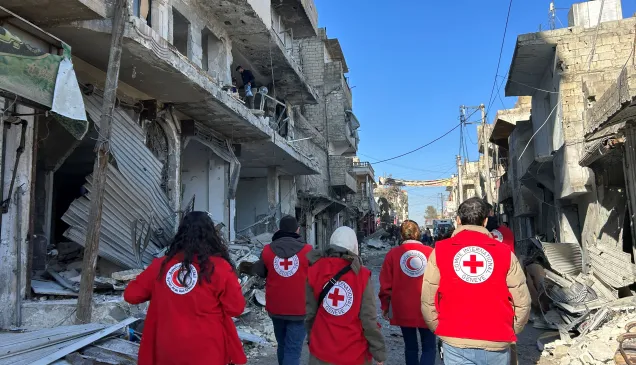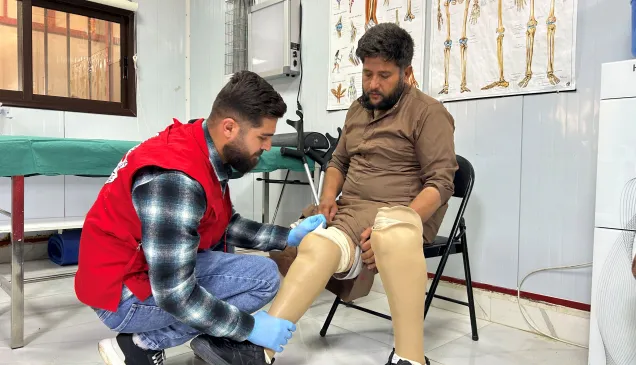Aleppo/Geneva (ICRC) – As the crisis in Syria moves into its tenth year, the needs of the people who have endured so much are vast and complex. The statistics are stark: more than 11 million Syrians rely on aid, tens of thousands of people remain missing, one out of two Syrians is displaced and at least 2 million children have had their education disrupted or not had a chance to even start it.
Alongside such deep need for long-term support, millions of Syrian families also have urgent emergency needs. In Idlib, since December almost a million people have been forced to run for safety amid intensified fighting in harsh winter conditions, creating the worst wave of displacement of the conflict. Many of those who fled had already been displaced many times over. Severe lack of access for humanitarian workers makes it almost impossible for people to get the help they need.
"Unhindered access to all places where people need emergency help is critical and can be life-changing for those we reach. Humanitarian access must not be politicized. It is one important step on a long road.
There are huge long-term needs across Syria that we must not forget," said Peter Maurer, President of the International Committee of the Red Cross, speaking on a recent visit to Aleppo, where he toured a water pumping station that serves over 2 million people.
"Seeing first-hand our crucial work together with the Syrian Arab Red Crescent (SARC) at the pumping station in Aleppo was very important. Without it the city has practically no drinking water. This shows how vital it is for millions of people in Syria, that we are able to maintain our programs throughout the country," said Mr Maurer.
Across Syria, many millions of people need support in rebuilding their lives and livelihoods. Basic services, hospitals and schools need to be rebuilt. Houses and land need to be cleared of unexploded ammunition. Jobs and other sources of income need to be created and maintained. People need help dealing with the physical and mental consequences of what they have lived through.
In a society divided by years of violence, a critical building block of reconciliation is and will be the issue of missing people. Tens of thousands of people, at least, have gone missing in the conflict. The ICRC asks all parties to the conflict to fulfill their obligations to search for missing persons and manage the dead systematically and with respect. In addition, families have the right to know what happened to their loved ones.
The ICRC continues to visit or seek access to all detainees, be they Syrians, Iraqis or third-country nationals. Since last year, we have also seen tens of thousands of people – stranded women and children for the most part - languish in camps in the country's northeast. They too deserve a sustainable and humane solution to their plight.
The ICRC, along with the SARC and the support of our other Movement partners, is ready to increase its humanitarian response to meet the vast needs across Syria and has urged all parties to provide access and security guarantees so that they can adequately respond to the enormous needs on both sides of the frontlines.
For more information, please get in touch with our spokespeople:
Ingy Sedky, ICRC Syria, Whatsapp only, Tel.: +963 993177769, isedky@icrc.org
Sarah Alzawqari, ICRC Beirut, Tel.: +961 3 13 83 53, salzawqari@icrc.org
Ruth Hetherington, ICRC Geneva, Tel.: +41 79 447 3726, rhetherington@icrc.org



